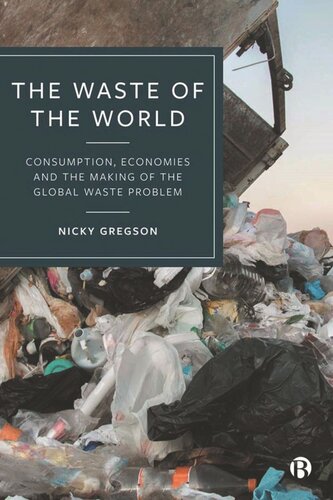

Most ebook files are in PDF format, so you can easily read them using various software such as Foxit Reader or directly on the Google Chrome browser.
Some ebook files are released by publishers in other formats such as .awz, .mobi, .epub, .fb2, etc. You may need to install specific software to read these formats on mobile/PC, such as Calibre.
Please read the tutorial at this link: https://ebookbell.com/faq
We offer FREE conversion to the popular formats you request; however, this may take some time. Therefore, right after payment, please email us, and we will try to provide the service as quickly as possible.
For some exceptional file formats or broken links (if any), please refrain from opening any disputes. Instead, email us first, and we will try to assist within a maximum of 6 hours.
EbookBell Team

5.0
18 reviewsDespite frequent claims that waste is being reduced, consumer-reliant economies, everyday consumption and the waste industry continue to produce and demand more waste. Combining a lucid style with robust empirical and theoretical research, this book examines the root causes of the global waste problem, rather than simply the symptoms. It challenges existing waste policies, highlighting what needs to change if we are to get serious in tackling this global problem. It concludes with policy implications for shifting waste from an ‘end-of-pipe’ concern to being at the heart of the debate over decarbonisation.